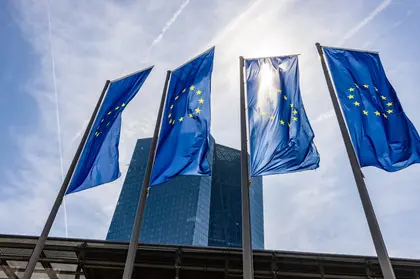The EU on Friday, July 28, imposed sanctions on 12 Russian individuals and entities over a state-linked campaign to spread disinformation about the war in Ukraine using fake media web pages.
"We are targeting those carrying out information manipulation and interference as part of a broader hybrid campaign by Russia against the EU and the member states," EU foreign policy chief Josep Borrell said.
JOIN US ON TELEGRAM
Follow our coverage of the war on the @Kyivpost_official.
"With these new listings we are sending a strong signal that we know how they manipulate our information space and how they operate."
The EU said the disinformation campaign -- dubbed "Recent Reliable News" -- aimed at "distorting information and disseminating propaganda in support of Russia's war of aggression against Ukraine".
The bloc said it involved "fake pages usurping the identity of national media outlets and government websites" in the West, and had been spread by Russian state bodies.
EU powerhouse France in June said it had uncovered a major Russian disinformation campaign impersonating leading French dailies and German publications.
As part of its sanctions, the EU placed Russian online outlet Inforos and three of its founders on an asset-freeze and visa-ban blacklist.
It said Inforos was linked to Russian military intelligence and "responsible for setting up more than 270 media proxy online outlets" to spread propaganda about the invasion of Ukraine.
Other listings included ANO Dialog, a non-governmental organisation tied to Russia's presidential administration, and two IT companies accused of involvement in the campaign.

North Korean Troops Face Major Losses in Kursk: The Cost of Russia’s Desperation
The West has long struggled to counter Moscow's disinformation activities, which have grown more virulent since Russian President Vladimir Putin launched the all-out invasion of Ukraine last year.
The EU has already imposed repeated waves of unprecedented sanctions against Russia since the Kremlin's troops crossed the border into Ukraine in February 2022.
Among those targeted have been leading Russian state propagandists and Kremlin-controlled media mouthpieces.
You can also highlight the text and press Ctrl + Enter






